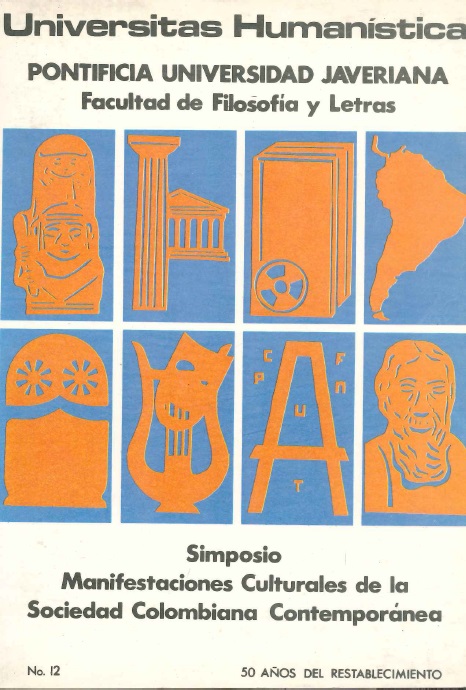Abstract
HISTORIA DE LA ANTROPOLOGÍA EN EL PAÍS.
La historia de la Antropología en el país, se inicia en 1930, cuando finalmente el gobierno nacional se decide por la conservación y estudio del patrimonio cultural, arqueológico e indígena. Es a partir de esta área, cuando empieza a perfilarse en el país "la tendencia hacia la sistematización de tales disciplinas cultivadas en forma aislada por meritorios hombres de estudio y patrocinados finalmente por el Estado a través de centros de investigación y de los establecimientos de enseñanza superior. Sin embargo, los rasgos peculiares de las diferentes culturas indígenas, la variación que se advierte en las distintas manifestaciones arqueológicas y la forma como han influido en esto las propias características del territorio nacional, han despertado a todo lo largo de nuestro proceso histórico el interés de los hombres de estudio por conocer y descubrir estas realidades del país, interés que se origina ya desde el momento mismo en que se lleva a cabo el descubrimiento y conquista de las distintas regiones del Nuevo Reino de Granada y donde tuvieron lugar los primeros contactos con las agrupaciones nativas cuyas formas de vida impresionaron profundamente a los expedicionarios europeos y movieron su ánimo a describirlas en diarios de viaje, crónicas, informes y relatos". (Duque Gómez, 1970, pp. 213-14).

This journal provides immediate open access to its content on the principle that making research freely available to the public, encourages greater global exchange of knowledge.
The journal Universitas Humanística is registered under a Creative Commons Attribution 4.0 International Public License. Thus, this work may be reproduced, distributed, and publicly shared in digital format, as long as the names of the authors and Pontificia Universidad Javeriana are acknowledged. Others are allowed to quote, adapt, transform, auto-archive, republish, and create based on this material, for any purpose (even commercial ones), provided the authorship is duly acknowledged, a link to the original work is provided, and it is specified if changes have been made. Pontificia Universidad Javeriana does not hold the rights of published works and the authors are solely responsible for the contents of their works; they keep the moral, intellectual, privacy, and publicity rights.
Approving the intervention of the work (review, copy-editing, translation, layout) and the following outreach, are granted through an use license and not through an assignment of rights. This means the journal and Pontificia Universidad Javeriana cannot be held responsible for any ethical malpractice by the authors. As a consequence of the protection granted by the use license, the journal is not required to publish recantations or modify information already published, unless the errata stems from the editorial management process. Publishing contents in this journal does not generate royalties for contributors.


